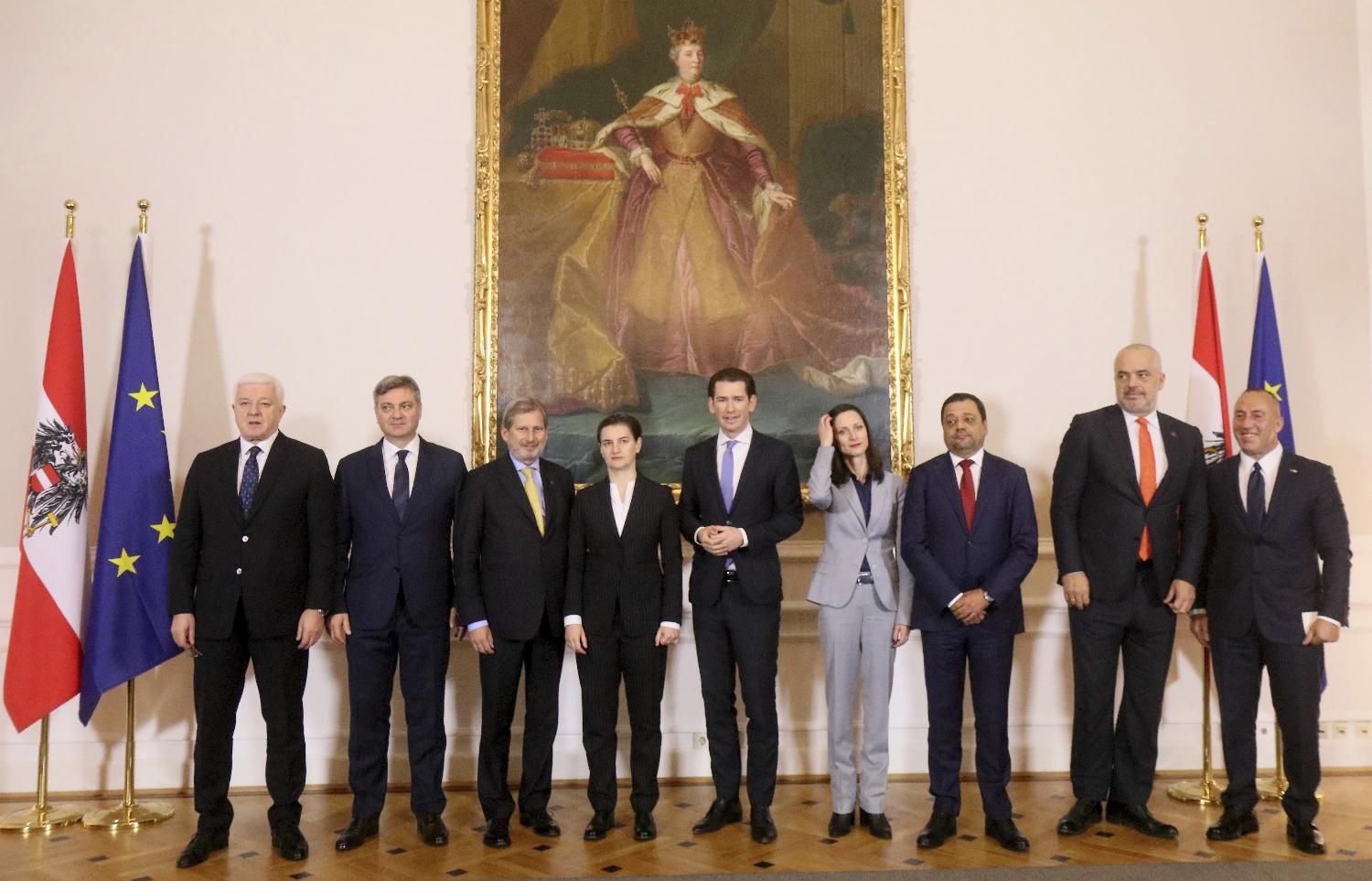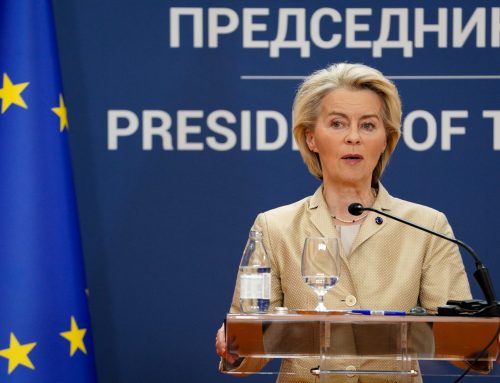European Commissioner for Enlargement Johannes Hahn said that all six Western Balkan countries have EU membership perspective, but added that it would be unlikely that all of them together would join the EU.
After a working breakfast organised for prime ministers of five Western Balkan countries and two European Commissioners by Austrian Chancellor Sebastian Kurz, Hahn stressed the importance of Brussels commitment to the Union’s enlargement towards the Western Balkans.
“Admission into membership is developing on merit and it is not probable that the Western Balkans countries will join EU together at the same time, but it is important that there is a perspective of membership for all six countries,” Hahn told a press conference.
He thanked Austria for setting up enlargement as one of the key priorities of its EU presidency mandate and described the meeting on Monday as “another proof of this very strong commitment.”
Hahn said that a forming of regional economic area was discussed at the meeting, adding that it was the first step towards integration into the unified European market.
It is important to increase the range of trade exchange within the region, the European Commissioner said, adding that it was “promising” that the slight increase was registered for the first time in 2017 compared to 2016.
Hahn said that the trade exchange between EU and six Western Balkans countries has been doubled in the past 10 years, adding that this fact indicated how big was the potential of this region. He said that it was necessary to improve cooperation between the states in order to use this potential.
Austrian Chancellor said that Austria has strongly supported Western Balkans countries on their EU path, adding that European stability largely depends on the stability of that region.
Speaking at the joint press conference, Kurz said that Austria was a strong partner for the Western Balkan countries, having strong historic, economic, political, cultural and human relations.
“We think that EU will be complete only when Western Balkans is in it, that is why we support those countries on their path towards EU and special focus on that region during our presidency of the European Union,” Kurz said.
Kurz said that the participants at the working breakfast had had an opportunity to focus on three major issues – the region’s path towards the EU, necessary regional cooperation and solving of bilateral conflicts.
He thanked all prime ministers on a good cooperation between Austria and their countries, but also to the European commissioners, especially European Commissioner for Enlargement for all he has been doing in the region.
Prime Ministers of Serbia, Kosovo, Albania and Montenegro — Ana Brnabić, Ramuš Haradinaj, Edi Rama and Duško Marković, Bosnia and Herzegovina’s Council of Mininsters president Denis Zvizdić and EU commissioner for Digital Economy and Society were also present at the working breakfast.
Macedonian Prime Minister Zoran Zaev has cancelled his participation due to actual political situation in his country.
Serbian Prime Minister said that Serbia has been very devoted to European integrations and hoped to open several negotiation chapters by the end of the year.
Opening of the new chapters by the end of the year would be an “important and clear signal” from Brussels to the citizens of Serbia, Brnabić said at the press conference.
She estimated that there have been problems in the regional cooperation between the Western Balkans, citing the example of recent introduction of 10 percent-tariffs by Kosovo on the goods coming from Serbia and Bosnia and Herzegovina.
She said that the move was “not only breach of CEFTA, but also a clear discrimination of Serbia and everything Serbian.”
“We hope that we will soon be able to go back to implementation of CEFTA, which would enable us to continue discussing things that we can together fulfil in future,” Brnabić said.
She said that the work on connecting the region is important for Serbia and as one of and noted as one of priorities “mutual recognition of professional and academic qualifications.”




